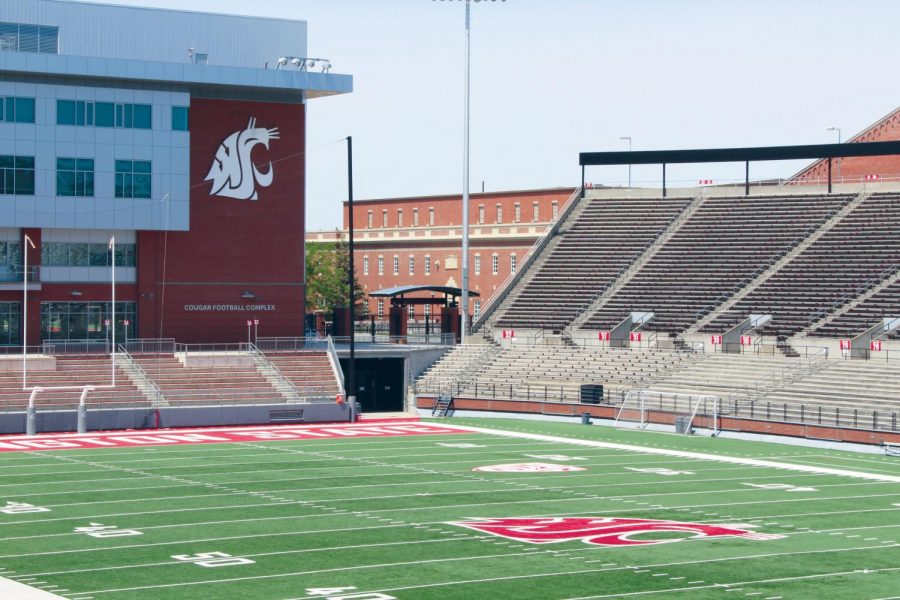Leaders hope to increase stadium access
Students asked for reopening, athletics to explore options
DOMINIQUE STEWART | DAILY EVERGREEN FILE
Martin Stadium may soon be opened to students once again, but issues such as lighting and security need to be addressed first.
June 13, 2018
ASWSU President Savannah Rogers and Vice President Tyler Parchem listed opening Martin Stadium for public use and shutting off the field’s lights as two of their goals during their first 100 days in office.
Opening the stadium has been a priority for students since its closing a couple of years ago, Rogers said.
“It’s just something that students feel is so important to them,” she said. “It was a selling point for the reason a lot of students chose WSU.”
WSU decided to close the stadium following multiple incidents of heavy littering inside the facility. Much like Granite Point earlier this year, a few students left garbage in the stadium, causing it to be closed to the public as a whole, Parchem said.
However, he feels the field should be open since it has been funded by students.
“We’re paying for this stadium,” he said. “We should be able to utilize it.”
The pair recently met with officials from the athletic department about the possibility of reopening Martin Stadium for public use. One idea discussed at the meeting was using CougarCard swiping stations to allow access to students, a system that Rogers said has already been used previously in other areas. However, issues arise with the possibility of the stations breaking or people leaving the doors open once inside.
No decision has been made yet, but ASWSU plans on having further discussion with athletics about the issue once Director of Athletics Patrick Chun returns to Pullman, Rogers said.
Another issue students voiced concern to ASWSU about was the field lighting in Martin Stadium, which sometimes remains on when the facility isn’t in use.
Students told the pair during their campaign that they didn’t like the light pollution and potentially costly energy usage caused by leaving the lights on unnecessarily, Parchem said.
“Pullman is in a very beautiful place where we can see stars,” he said. “But if the lights in Martin Stadium are on when no one’s using it, that just adds to the light pollution and we’re not able to take in the full effect of the beauty of campus.”
The leaders also discussed this issue with athletics, where they discovered the lights are not purposefully left on at unnecessary times by the department but instead comes as a result of miscommunication between different groups reserving the field.
If a group fails to notify the proper officials of plans to cancel reservations, the lights sometimes get left on, Rogers said. Other times, it may be counterproductive to turn the lights on and off if the period of time between usage is short, as the process can take time and be hard on the bulbs, she said.
The lighting issue also plays into opening the stadium to the students, as the lights would need to be on any time there is not sufficient sunlight to ensure the safety of possible visitors, Rogers said. While no decision has been made yet, she said the group plans on revisiting the issues when Chun returns.










